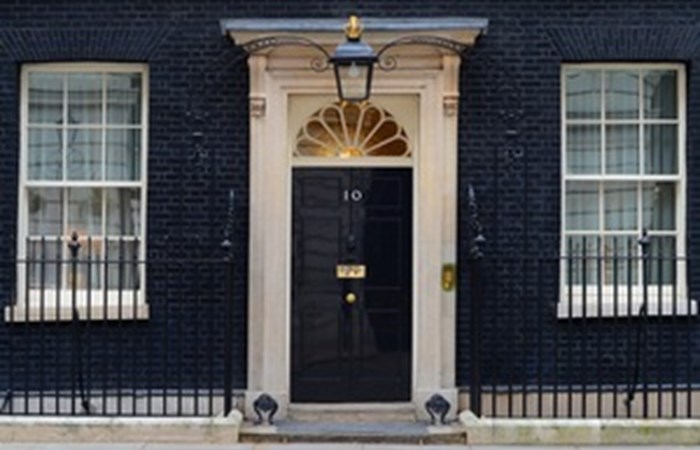Prime Ministers Office 10 Downing Street

Through an amendment tabled to the Public Order Bill, the Government will broaden the legal definition of serious disruption, giving police greater flexibility and clarity over when to intervene to stop the disruptive minority who use tactics such as blocking roads and slow marching to inflict misery on the public.
While the Government has already given police additional powers to prevent protestors using guerrilla tactics, police chiefs have told the Prime Minister that there is some uncertainty over what reaches the threshold of serious disruption.
The changes introduced today will give police officers absolute clarity over when they should step in. In practice, this will mean:
- police will not need to wait for disruption to take place and can shut protests down before chaos erupts
- police will not need to treat a series of protests by the same group as standalone incidents but will be able to consider their total impact
- police will be able to consider long-running campaigns designed to cause repeat disruption over a period of days or weeks
Prime Minister Rishi Sunak said:
The right to protest is a fundamental principle of our democracy, but this is not absolute. A balance must be struck between the rights of individuals and the rights of the hard-working majority to go about their day-to-day business.
We cannot have protests conducted by a small minority disrupting the lives of the ordinary public. Its not acceptable and were going to bring it to an end.
The police asked us for more clarity to crack down on these guerrilla tactics, and we have listened.
Commissioner of the Metropolitan Police Service, Sir Mark Rowley said:
The Met has a long history of policing protests, responding quickly and effectively to incidents involving crime and where serious disruption is caused, often in challenging situations. We have specialist officers trained to deal with a range of tactics, but this is complex, time-consuming work.
It is clearly understood that everybody has the right to protest. Increasingly however police are getting drawn into complex legal arguments about the balance between that right to protest and the rights of others to go about their daily lives free from serious disruption. The lack of clarity in the legislation and the increasing complexity of the case law is making this more difficult and more contested.
It is for Parliament to decide the law, and along with other police chiefs, I made the case for a clearer legal framework in relation to protest, obstruction and public nuisance laws. We have not sought any new powers to curtail or constrain protest, but have asked for legal clarity about where the balance of rights should be struck.
I welcome the governments proposal to introduce a legal definition of serious disruption and reasonable excuse. In practical terms, Parliament providing such clarity will create a clearer line for the police to enforce when protests impact upon others who simply wish to go about their lawful business.
National Police Chiefs Council Lead for Public Order and Public Safety, Chief Constable BJ Harrington, said:
We welcome the constructive conversations with government over more clearly defining serious disruption. This will support officers in confidently and quickly taking action and making arrests where appropriate.
Policing is not anti-protest, but there is a difference between protest and criminal activism, and we are committed to responding quickly and effectively to activists who deliberately disrupt peoples lives through dangerous, reckless, and criminal acts.
Police have a responsibility to appropriately balance the rights of the public who are going about their daily business lawfully and the rights of those protesting.
The College of Policing have confirmed today that they will produce guidance outlining the additional powers given to officers over the last year.
National Highways is also reviewing its guidance, taking learnings from previous protests to ensure that roads are reopened as quickly as it is safe to do so.
Todays announcement is the latest step in the Governments continued commitment to tackle the highly disruptive protests that the British public have been increasingly subjected to over the last few years.
Through the Police, Crime, Sentencing and Courts Act, the Government introduced a statutory offence of public nuisance and created powers for the police to place conditions on unjustifiably noisy protests and increased the sentences for obstructing the highway. Measures already announced in the Public Order Bill include creating a new criminal offence for interfering with key national infrastructure and for locking-on.
The Prime Minister also sat down with the Home Secretary and police chiefs in December to give a clear message that the Government expects protesters who disrupt the lives of others to be swiftly removed and arrested.
Further supportive quotes
Matthew Scott, Kents Police and Crime Commissioner said:
When Police Leaders were summoned to No. 10 last month, the Prime Minister made it absolutely clear that the law-abiding public must be protected from disruptive illegal protests. The Prime Minister promised to give policing the powers needed to end disruptive protests faster.
Today, the Prime Minister has delivered on his promise to PCCs and Police Leaders to aid police forces by clarifying the law governing disruptive protests. This is in addition to the steps the Government has already taken to give policing more powers in the Police, Crime, Sentencing and Courts Act.
Kent Police was robust in dealing with these activists during last years disruption. This new clarity is welcome and should mean no more excuses from any agency for not clearing up disruption effectively.
Nick Harris, National Highways Chief Executive, said:
The strategic road network is the backbone of the country, supporting the movement of trade, the daily commute and connecting friends and families, so people have a right to expect it to operate efficiently.
Weve already obtained civil injunctions to deter reckless and dangerous protests on these busy roads. When they do occur, our guidance will help keep disruption to a minimum by ensuring that the carriageway is opened as quickly
